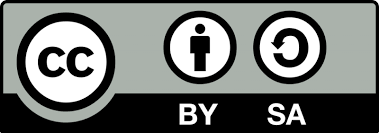Grade complaint procedure: a chance to improve teaching
DOI:
https://doi.org/10.23824/ase.v0i32.660Downloads
Abstract
During teachers’ training, 48% of them in Spain (according to TALIS, 2018), have studied the contents of their subjects, specific and general teaching and practice in the classroom. However, this average is lower than the average in OECD countries and economies that participate in TALIS (79%). Although this trend seems to decrease in the last five years, most teachers admit to have training needs in "student assessment practices" and "teaching students with special needs." Considering teachers’ functions set by the Organic Law of Education in its article 91.1, the fact that teachers in Spain have difficulties with the evaluation of their students and the support to their educational process, this could affect directly to the improvement plan of our educational system. Sometimes, families show their disagreement with the grades assigned to a student, and/or about the promotion/degree decision and/or about the support raised to their children (especially in ESO and Baccalaureate, but also, in the last years, in Primary school). This disagreement can turn into a formal grade complaint. Some regions in Spain have set this complaint procedure, however no advisory processes have been found from the Administration (Inspection) to the schools. With this article, we pretend to help teachers to know what should be analiced in a complaint in the school, and by the Inspection itself if it arrives there. Related to the same advisory function from intendants, this document can be used by families to know the rights that the different standards operatives define. Anyway, this document should be consider as a chance to improve as a professional and not as a threat.
References
Esteban, S. (2019). La supervisión educativa como función principal de la inspección: características y propósitos. Revista Aula, Nº 25. Recuperado de https://dialnet.unirioja.es/ejemplar/527638.
Gómez, JL. (2016). El director escolar en el siglo xxi: liderazgo pedagógico e inteligencia emocional. Revista Unión Sindical de Inspectores de Educación nº 39. Recuperado de http://usie.es/supervision-21/.
Hernández Díaz, J. M. (2019). La Inspección Educativa y la cultura escolar en España: génesis, proceso constituyente y actualización de funciones. Revista Aula, nº 25. Recuperado de https://dialnet.unirioja.es/ejemplar/527638.
OCDE (2016). Teaching in Focus: Liderazgo escolar para el desarrollo de comunidades de aprendizaje profesional Recuperado de http://www.oecd.org/education/school/Teaching-in-Focus-brief-15-Spanish.pdf.
OCDE (2017). Panorama de la educación. Indicadores de la OCDE 2017: Informe español. Ministerio de Educación Cultura y Deporte. Recuperado de https://www.mecd.gob.es/dctm/inee/eag/2017/panorama-de-la-educacion-2017-def-12-09-2017red.pdf?documentId=0901e72b8263e12d el 25 de febrero de 2017.
Organización de Estados Iberoamericanos para la Educación, la Ciencia y la Cultura (OEI) (2017). Desarrollo profesional liderazgo de directores escolares en Iberoamérica. Instituto de Evaluación (IESME) de la OEI. Madrid. Recuperado de http://blog.educalab.es/inee/2017/10/05/informe-miradas-sobre-la-educacion-en-iberoamerica-2017-desarrollo-profesional-y-liderazgo-de-directores-escolares-en-iberoamerica/.
Polo, I. (2013). ¿Medidas ordinarias de atención a la diversidad? Avances en Supervisión Educativa nº 19. Recuperado de http://www.adide.org/revista/index.php/ase.
Polo, I (2016). Tiempos de resultados de aprendizaje. Avances en Supervisión Educativa nº 26. Recuperado de https://doi.org/10.23824/ase.v0i26.570.
Polo, I, y Puertas, G. (2017). Guía para la elaboración de una programación didáctica en las etapas de educación primaria y secundaria. Avances en Supervisión Educativa nº 27. Recuperado de https://doi.org/10.23824/ase.v0i27.593.
Polo, I. (2011). Los criterios de evaluación como detonante de la programación didáctica. Avances en Supervisión Educativa nº 14. Recuperado de https://avances.adide.org/index.php/ase/article/view/482/323.
Polo, I. (2018). La visita de inspección en riesgo de extinción. Avances en Supervisión Educativa nº 29. Recuperado de https://doi.org/10.23824/ase.v0i29.623.
Sarasúa, A. (2019). La Inspección de Educación, un futuro incierto. Revista Aula nº 25. Recuperado de https://dialnet.unirioja.es/ejemplar/527638.
TALIS (2018). Guía del profesorado (OCDE). Recuperado de http://www.educacionyfp.gob.es/inee/evaluaciones-internacionales/talis/talis-2008.html.
How to Cite
Issue
Section
Published
Keywords:
License

Attribution Share-Alike CC BY-SA
Those authors who have publications with this magazine, accept the following terms:
A) The authors will retain their copyrights, which will be simultaneously subject to the Creative Commons Attribution License that allows others to re-mix, modify and develop on your work even for commercial purposes, provided they credit you And to license their new works under the same terms.
B) The authors will retain the rights of exploitation of the intellectual property of this work, and especially the rights of reproduction, distribution, transformation in any of its modalities and public communication of said work, which will be simultaneously subject to the License Of recognition of Creative Commons that allows others to re-mix, modify and develop on your work even for commercial purposes, provided they credit you and license your new works under the same terms.
Creative Commons Attribution-ShareAlike 4.0 International Public License

